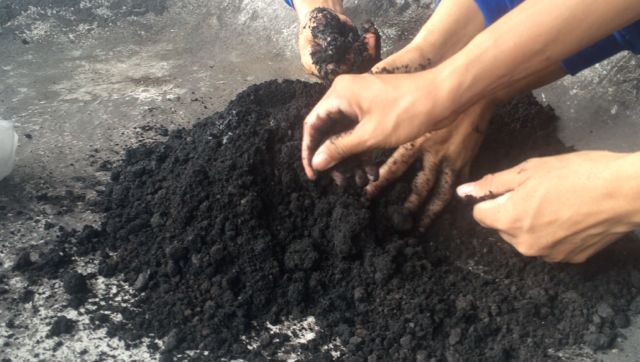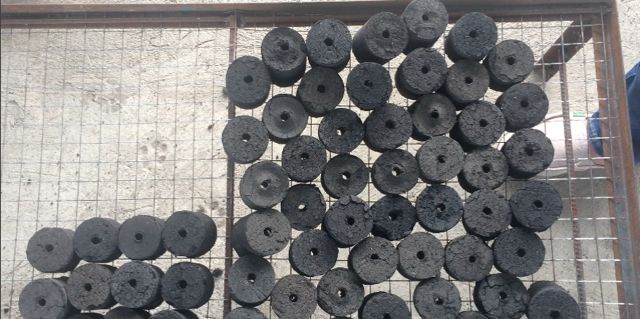SUMMARY
This is AI generated summarization, which may have errors. For context, always refer to the full article.

TACLOBAN CITY, Philippines – Typhoon Yolanda (Haiyan) did not only leave deep scars in the hearts of its victims but also devastated hectares of agricultural lands, leaving many farmers in Eastern Visayas hopeless.
One of them is Aling Rosalinda and her farmers’ association based in Tolosan, a municipality south of Tacloban City.
Rosalinda Tupas, president of the Magbinuligon Bayanihan Association (MBA), could still recall vividly how the typhoon washed out their small-scale vegetable and livestock farms.
“Dun kami sa may dagat, mga vegetables lang ‘tinatanim namin, may livestock kami tapos na-wash out,” she shared.
(We were living by the sea, we were planting vegetables and we have a livestock farm then those were washed out.)
But just as their community in Barangay Opong fall hopeless as their livelihood was ruined, they found an opportunity in the agricultural debris left by the typhoon.
Instead of burning the fallen leaves and coconuts, they transformed those materials to an eco-friendly product they call “green charcoals.”

‘One man’s waste is another man’s treasure’
Still black in color, MBA’s green charcoals are safer for the environment because it makes use of discarded agricultural materials that add to generated waste if not disposed properly.
“Ang kakaiba nitong green charcoal kasi ‘yung inuuling namin yung mga dahon, mga debris, dahon ng niyog,” Tupas told Rappler.
(What is different about green charcoal is that we make use of fallen leaves like the ones from the coconut trees.)
“Iyong bunot kasi tinatapon lang, sinusunog lang nasasayang pero ngayon hindi na sila nasasayang kasi kinukuha na namin.”
(Cocounut husks used to be wastes and were not really utilized. Now they are put to better use.)
The green charcoals combust quicker than regular ones so it does not emit much smoke. And since the charcoals were made of leaves, it smells more aromatic than smoky.
Workers are also free from health hazards since their facility controls the smoke released by the charcoal production.
With a tube installed at the back of the cement ovens where materials are burned, the smoke released from combustion is trapped and condensed into a liquid substance. The resulting product is a pesticide they also sell to farmers.
The project was headed by the International Labor Organization (ILO) in partnership with the Department of Science and Technology (DOST) and funded by the local government.
“Solution siya sa mga environmental problems and at the same time malaking para and magegenerate say sa mga survivors,” said project coordinator Minerva Rosel of the ILO.
(It is a solution to environmental problems and at the same time generates large income for the survivors.)
Sustainability in agriculture
In a month, they produce about 4,000 kilos of green charcoal, which they sell for P30 per kilo.
Each worker, as a member of the farmer’s association, gets dividend from sales on top of the daily minimum wage of P300.
As of now, their main clients are nearby households and other farmer groups. But they are planning to maximize sales as they join trade fairs locally and in Manila and provide samples to a big rotisserie chain.
They also yield and sell organic fertilizers, lemon grass juice, and various vegetables on the sides to augment their income.
Rosel said the typhoon served a blessing in disguise for Tolosa farmers to appreciate the value of sustainable livelihood and thinking more long-term than just the daily wage.
“At first, they were thinking short-term. They appreciate the assurance of having a salary every day. But they eventually appreciated that they would earn more, on a long-term basis, through this enterprise,” she said in Filipino.
“Now they have a deeper understanding of the importance of caring for the environment because they know their lands will be the one providing them livelihood.” – Rappler.com
Add a comment
How does this make you feel?
There are no comments yet. Add your comment to start the conversation.